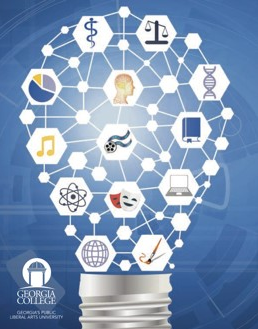Lying and its Effects on Memory and Reaction Time
Abstract
Past research has shown that memory can be negatively affected by lying (Pickel 2004). Our lab has also demonstrated that lying about details in an eyewitness event can lead to false memories. To further investigate the effect that lying has on memory, we looked at the effect of retention interval (1-week and 4-weeks) on the development of false memories and the speed with which participants accurately or inaccurately answered questions about real and fabricated details. Participants watched a video of a bank robbery and were then asked a series of questions about the video. Participants were asked two kinds of questions: They were asked about details that were in the video and were also asked to fabricate lies about details that never occurred in the video. After one week the participants returned to truthfully answer 16 yes/no recognition questions about the details from the video. Of these questions, 8 were about details seen in the video (true questions) and the other 8 were about details that were not seen during the clip (lie questions). For both question types, the specific details of each question were taken directly from the participant’s responses from the first week or from a yoked partner (control condition). Finally, after 4 weeks their memory of the video from Day 1 was assessed again. The final yes/no recognition test contained a total of 32 items, half of these questions were identical to the questions from Day 2 but the other 16 questions (8 true and 8 lie) were about details that were not contained in the Day 2 questionnaire. We found that at both retention intervals, participants falsely assented to having seen the details they had previously lied about, but reaction time was not diagnostic of response accuracy on either Day 2 or 3.
Lying and its Effects on Memory and Reaction Time
Past research has shown that memory can be negatively affected by lying (Pickel 2004). Our lab has also demonstrated that lying about details in an eyewitness event can lead to false memories. To further investigate the effect that lying has on memory, we looked at the effect of retention interval (1-week and 4-weeks) on the development of false memories and the speed with which participants accurately or inaccurately answered questions about real and fabricated details. Participants watched a video of a bank robbery and were then asked a series of questions about the video. Participants were asked two kinds of questions: They were asked about details that were in the video and were also asked to fabricate lies about details that never occurred in the video. After one week the participants returned to truthfully answer 16 yes/no recognition questions about the details from the video. Of these questions, 8 were about details seen in the video (true questions) and the other 8 were about details that were not seen during the clip (lie questions). For both question types, the specific details of each question were taken directly from the participant’s responses from the first week or from a yoked partner (control condition). Finally, after 4 weeks their memory of the video from Day 1 was assessed again. The final yes/no recognition test contained a total of 32 items, half of these questions were identical to the questions from Day 2 but the other 16 questions (8 true and 8 lie) were about details that were not contained in the Day 2 questionnaire. We found that at both retention intervals, participants falsely assented to having seen the details they had previously lied about, but reaction time was not diagnostic of response accuracy on either Day 2 or 3.


